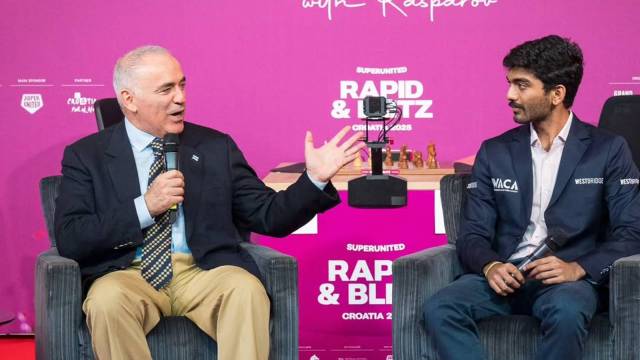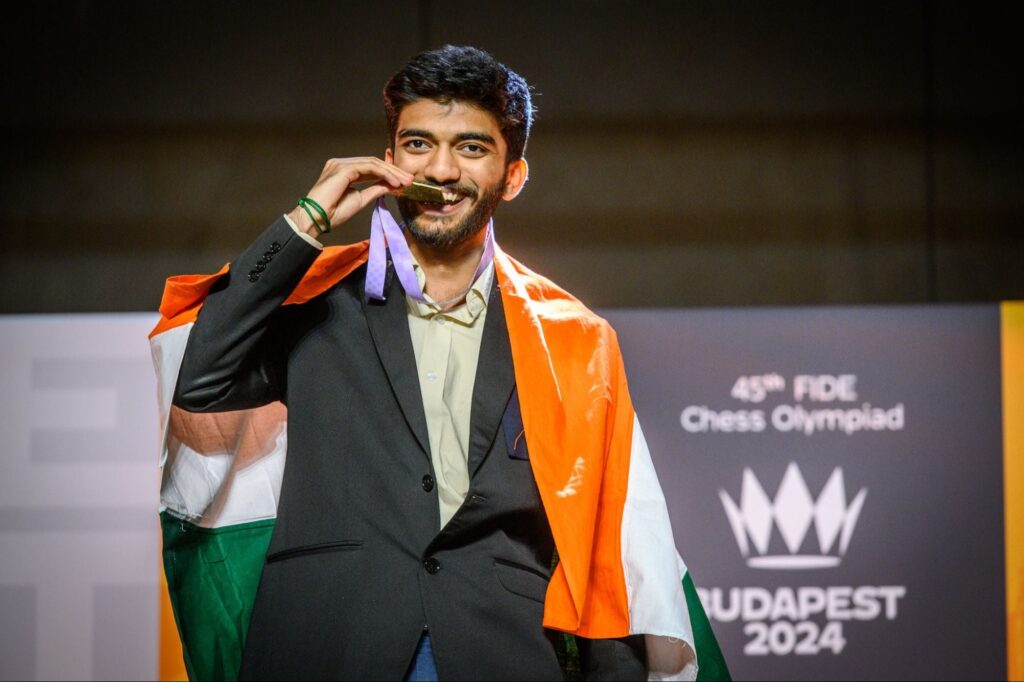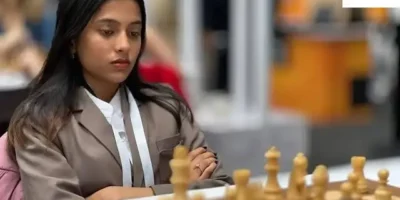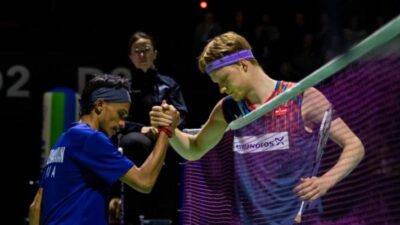In a moment that captured the essence of chess excellence across generations, Russian chess legend Garry Kasparov and reigning World Champion D Gukesh shared a stage at the opening ceremony of the SuperUnited Rapid and Blitz in Zagreb. The exchange was brief, but its message was enduring—a master’s advice to his successor: “The moment you rest, it will not take long to decline.”
For young Gukesh, the weight of history has never been heavier. Having captured the world title at just 18 years of age in December 2024, he broke a four-decade-old record held by Kasparov himself, who had been the youngest World Champion since 1985. The transition from prodigious challenger to chess’s most coveted crown bearer hasn’t been without challenges, but Gukesh now seems to have found his rhythm amid the swirling demands of global stardom.

Russian chess legend Garry-Kasparov-and-reigning-World-Champion-D-Gukesh-shared-a-stage-at-the-opening-ceremony-of-the-SuperUnited-Rapid-and-Blitz-in-Zagreb.
Adjusting to Life as World Champion
Speaking candidly at the opening ceremony, Gukesh admitted, “It took some time for me to get adjusted to the title and the new expectations, the new schedule being so hectic. But now I’ve kind of settled into the new life. Now I am back to focusing on working hard and being my best self in every tournament.”
His remarks struck a chord with the audience, many of whom have watched his meteoric rise from child prodigy to chess titan. Yet it was Kasparov’s measured response that truly framed the moment in a broader context—one of legacy, discipline, and perpetual evolution.
Kasparov, who famously defended his title against Anatoly Karpov in some of the most storied duels in chess history, gave a masterclass in the mindset required not just to reach the top, but to remain there. “The moment you stop improving, actually the moment you stop thinking about improving – it’s over,” he warned. “I stayed on top so long because I knew that the main opponent is your own excellence. You have to keep improving all the time or at least you have to try. Because the moment you rest, you know it’ll not take long, especially now, to decline.”

It-took-some-time-for-me-to-get-adjusted-to-the-title-and-the-new-expectations-the-new-schedule-being-so-hectic
The Weight of Expectations
These words are not hollow platitudes. They come from a man who held the World Championship from 1985 until 1993 and was widely considered the dominant player of his era—even beyond his championship years. Kasparov’s emphasis on “self-competition” reflects a philosophy that has driven the likes of Federer in tennis, Messi in football, and now Gukesh in chess: greatness is never static.
For Gukesh, this lesson has never been more relevant. The Indian teen’s crowning moment in 2024 came under intense scrutiny. While he decisively beat China’s Ding Liren, some critics remained unconvinced, pointing to the absence of world number one Magnus Carlsen, who had voluntarily relinquished the title in 2023. But Gukesh responded the only way true champions do—on the board.
Last month, Gukesh stunned Carlsen in a gripping encounter that left no doubt about his legitimacy. That victory didn’t just serve as validation; it cemented his place among the elite and established that his reign was no fluke. And now, in Zagreb, the two meet again.

When-you-Are-A-Champion-People-have-a-lot-of-Expectations
Gukesh vs Carlsen: A New Chapter
The atmosphere in Zagreb was palpably electric as fans eagerly awaited the upcoming clash between the reigning champion and the Norwegian superstar. It’s the first meeting between the two since their tense face-off at the Norway Chess tournament, which ended with Carlsen smashing his fist on the board in frustration.
Yet at the opening ceremony, the tension gave way to sportsmanship. As Carlsen interacted with young fans—signing autographs and posing for selfies—Gukesh quietly walked over and took a seat next to him. In a gesture that blended respect with the quiet drama chess fans live for, Carlsen turned, noticed Gukesh, and extended his hand in greeting.
The handshake marked a subtle but powerful moment—a recognition of rivalry, respect, and shared greatness. Gukesh may be the reigning champion, but Carlsen remains the sport’s magnetic force, and their encounters now carry the gravitas of the greatest duels of yesteryear.

upcoming-clash-between-the-reigning-champion-and-the-Norwegian-superstar.
A Battle Against Complacency
If Kasparov’s advice underscored anything, it is that the true battle begins after you reach the summit. For Gukesh, the journey to greatness was powered by youth, hunger, and freedom from expectations. Now, with the title around his neck and the eyes of a billion chess fans watching, the challenge is to maintain that fire.
And the modern chess landscape offers no mercy. The rise of rapid and blitz formats, AI-driven preparation, and a new generation of hyper-aggressive players means that even a brief lapse can lead to a swift fall. As Kasparov noted, “especially now,” the margin for error is razor-thin.
Gukesh seems to understand this well. “I’m back to concentrating on improving myself,” he said. It’s a telling statement from a player who could easily rest on his laurels, yet chooses to view the world title not as an endpoint, but a new beginning.
India’s Golden Boy of Chess
Gukesh’s ascent has also reignited interest in chess across India. Following in the footsteps of Viswanathan Anand, the country’s first World Champion, Gukesh represents a new generation of Indian chess prodigies poised to dominate the international stage. His composure, humility, and work ethic make him a fitting role model in a sport that demands both mental rigor and psychological resilience.
His win over Carlsen last month marked not just personal triumph, but also a symbolic changing of the guard. It was as if the chess world, long orbiting around Carlsen’s gravitational pull, was now tilting toward Gukesh’s youthful brilliance.

Gukesh-represents- a-new-generation-of-Indian-chess-prodigies-poised-to-dominate-the-international-stage
Legacy and Longevity
The Zagreb tournament may yield more memorable encounters, but the real story lies in what comes after. Can Gukesh, like Kasparov before him, dominate an entire era? Can he withstand the pressure, the criticism, and the natural dips in form that even the best endure?
Only time will tell. But with mentors like Kasparov setting the bar high and with a mindset focused not on celebration but on self-betterment, Gukesh is off to a promising start.
In chess, the board resets after every game. But the lessons linger—etched in memory, recorded in grandmaster annotations, and passed down from legend to legend. As the torch passes from Kasparov to Carlsen to Gukesh, one truth remains constant: you’re only as good as your next move.
And if Gukesh keeps listening to voices like Kasparov’s, he’ll be making many great moves for years to come.
Click here to watch more!



















Comments